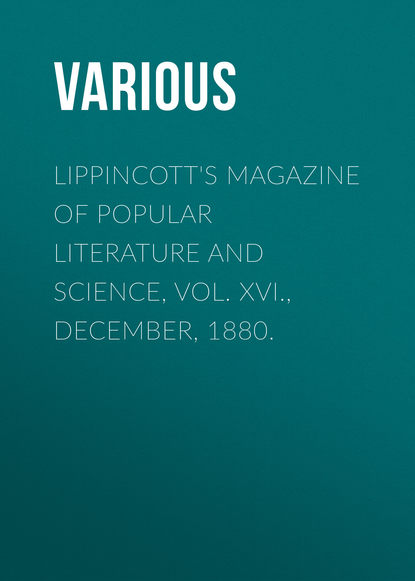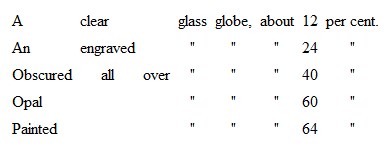 Полная версия
Полная версияLippincott's Magazine of Popular Literature and Science, Vol. XVI., December, 1880.
The Wellfields is a falling off from Probation, which in its turn was a distinct falling-off from Miss Fothergill's initial story, The First Violin. The characters are dim, intangible, remote, possessing no reality even at the outset, and as they progress becoming even more estranged from our belief and sympathy. Jerome is too feeble to arouse even our resentment, which we mildly expend on Sara instead for displaying grief for so poor a creature. When an author publishes one successful book, it should be a matter of serious thought whether it is not worth while to make such a triumph the crowning event of his or her destiny, lest Fate should have in reserve the tedious trials which await those who are compelled to hear that their sun has set.
Mrs. Walford's last book has, in a measure, retrieved a certain reputation for interest which her Cousins had lost. In Troublesome Daughters, however, one looks in vain for the fulfilment of the promise of Mr. Smith and her delightful Van: A Summer Romance.
In Brigitta we find enough of Auerbach's charm to like the story, simple as it is. It recalls his greater books only by the fidelity of the tone and the clearness of the pictures. Xander is well drawn, and the tragedy of his life, portrayed as it is by those few strong touches which reveal the real artist, is profoundly impressive.
1
I use here the official nomenclature of Pennsylvania: by whatever title the local officials are known in the various States, the general fact is of course the same in all.
2
In some tests given in Richards' Treatise on Coal Gas (p. 293) the following results were shown: Obstruction of light by—

3
There is a recent method of adding carbon to the gas which is not liable to the objection of clogging the pipes. By a small apparatus a stick of naphthaline is attached to the burner so as to be slowly vaporized. It is not yet in the hands of dealers in gas-fixtures.
4
Our narrative is drawn from the Libra del Passo Honroso, defendido por el excelente caballero Suero de Quiñones, copilado de un libro antiguo de mano por Fr. Juan de Pineda, Religiose de la orden de San Francisco. Segunda edicion. Madrid, 1783, in the Crónicas españolas, vol. v.
5
In modern French, Il faut délivrer—"It is necessary to release," referring to the chain worn by Quiñones.
6
"If it does not please you to show moderation, I say, in truth, that I am unfortunate."
7
Prosper Mérimée, in a note to his History of Peter the Cruel (London, 1849, vol. i., p. 35), says, referring to the above episode, "I do not think that at that period an example of similar condescension could be found anywhere except in Spain. A century later the chevalier sans peur et sans reproche, the valiant Bayard, refused to mount a breach in company with lansquenets."
8
Beginning, "Libera me, Domine, de morte æterna," etc.
9
The Church as early as 1131 (Council of Rheims) endeavored to prevent these dangerous amusements by denying burial in consecrated ground with funeral rites to those who were killed in tournaments.
10
Puymaigre explains this almost total absence of Frenchmen by the fact that in 1434 the wars between Charles VII and the English were being waged. The English pilgrims to Santiago (the large number of whom we have previously mentioned) were probably non-combatants.

